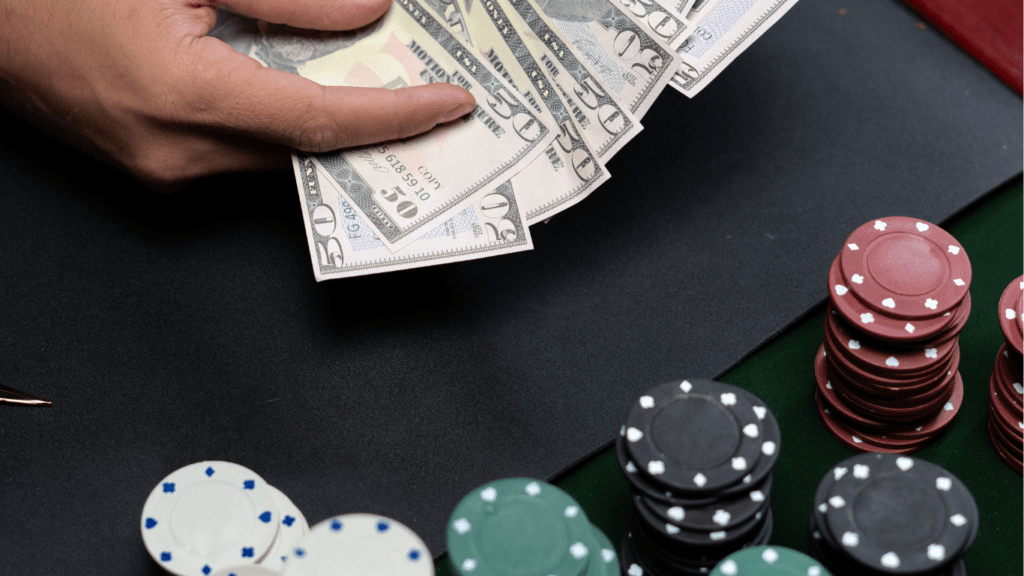Understanding Chasing Losses in Gambling
Chasing losses in gambling is a common issue many gamblers face. Identifying and understanding this behavior is essential to maintaining discipline.
What Is Chasing Losses?
Chasing losses refers to the practice of continuing to gamble with the hope of recovering previously lost money.
This behavior often leads individuals to make larger, riskier bets after a losing streak. Not only can this strategy increase financial losses, it can also lead to a cycle of compulsive gambling.
The key to avoiding this trap lies in recognizing the signs of loss chasing and taking proactive steps to prevent it.
Psychological Triggers Leading to Loss Chasing
Several psychological factors contribute to the urge to chase losses. Stress from losing can cause a gambler to believe that recovery is just one bet away, leading to irrational decisions.
The desire to avoid acknowledging a loss can drive individuals to continue gambling, hoping for a turnaround.
Additionally, the fleeting thrill of winning can create an emotional high, making gamblers forget past losses and focus solely on potential future wins.
Understanding these triggers helps in developing strategies to maintain discipline and prevent impulsive gambling decisions.
Strategies to Avoid Chasing Losses
Chasing losses is a significant challenge for many gamblers, but specific strategies can help maintain discipline and avoid falling into this trap.
Setting Clear Gambling Limits
Setting limits is crucial in any gambling activity. Establishing a budget for gambling ensures I don’t spend money intended for essential needs.
I allocate a specific amount I’m comfortable losing, and once I reach this limit, I stop playing. Setting time limits is equally important. I might decide to gamble for only one hour.
This practice helps prevent prolonged sessions, which can lead to increased losses. These boundaries create a disciplined approach and reduce the chances of chasing losses.
Importance of Short Breaks and Time-outs

Taking breaks helps clear my mind and reassess my situation. After a series of losses, stepping away for a few minutes can prevent impulsive decisions.
Breaks serve as a mental reset, allowing me to return to the game with a fresher perspective. If the feeling of chasing losses becomes overwhelming, using a time-out can provide a more extended break.
This time away gives me the opportunity to reflect on my actions, reducing the emotional pressure to win back lost money.
The Role of Discipline in Gambling
Discipline forms the backbone of responsible gambling. It’s critical to develop strategies that help maintain control and prevent compulsive behaviors.
Developing a Responsible Gambling Mindset
A responsible gambling mindset ensures long-term enjoyment and reduces risks. To cultivate this mindset, set realistic and defined goals for gambling activities.
Recognize that gambling is a form of entertainment, not a means to make money. Maintain awareness of both wins and losses to avoid emotional decision-making.
Tools and Supports for Maintaining Discipline
Several tools and supports can help maintain gambling discipline.
- Self-exclusion programs allow gamblers to voluntarily restrict access to gambling venues and websites.
- Deposit limits can control the amount of money that can be deposited over a set period.
- Many gambling platforms offer reality checks that remind players of time spent gambling, helping to avoid excessive play.
- Seeking support from gambling helplines and counselors provides external accountability and professional advice to sustain disciplined behavior.
Real-Life Stories: Learning From Others
Reading about others’ experiences can offer valuable insights into avoiding the pitfalls of chasing losses and maintaining discipline in gambling.
Below are some real-life accounts highlighting both successes and lessons learned from mishaps.
Success Stories in Maintaining Discipline
Many gamblers have successfully implemented strategies to maintain discipline while gambling.
One example is John, a seasoned bettor who established a strict budget before each gambling session and adhered to it without exceptions.
By sticking to his budget, John prevented emotional decision-making triggered by losses. His story demonstrates the power of financial boundaries in preserving discipline.
Another successful story involves Sarah, who used time-outs to manage her gambling habits such as:
- set alarms to alert her to take breaks
- give time to think and sleep
- enjoy the food
Her disciplined approach drastically reduced her impulse bets, leading to a more controlled gambling experience.
Lessons from Loss Chasing Mishaps
Conversely, there are stories of gamblers who initially struggled with chasing losses. David, an avid poker player, frequently tried to recover his losses by increasing his bets, leading to significant financial distress.
After seeking help from a gambling helpline, David learned to set betting limits and apply self-exclusion measures.
His experience underscores the importance of recognizing problematic behaviors early and seeking support.
Emma’s story highlights the psychological traps of gambling. After losing a substantial amount in online casinos, she continued to chase her losses, hoping to break even.
This cycle intensified her financial losses and emotional distress. Realizing her pattern, Emma joined a support group where she learned healthy gambling habits and regained control.
Her journey emphasizes the necessity of external accountability and professional advice in overcoming loss-chasing behaviors.
These real-life stories reaffirm the effectiveness of disciplined gambling strategies and the critical lessons learned from mishaps.
They serve as reminders of the importance of maintaining control and seeking support when needed.


